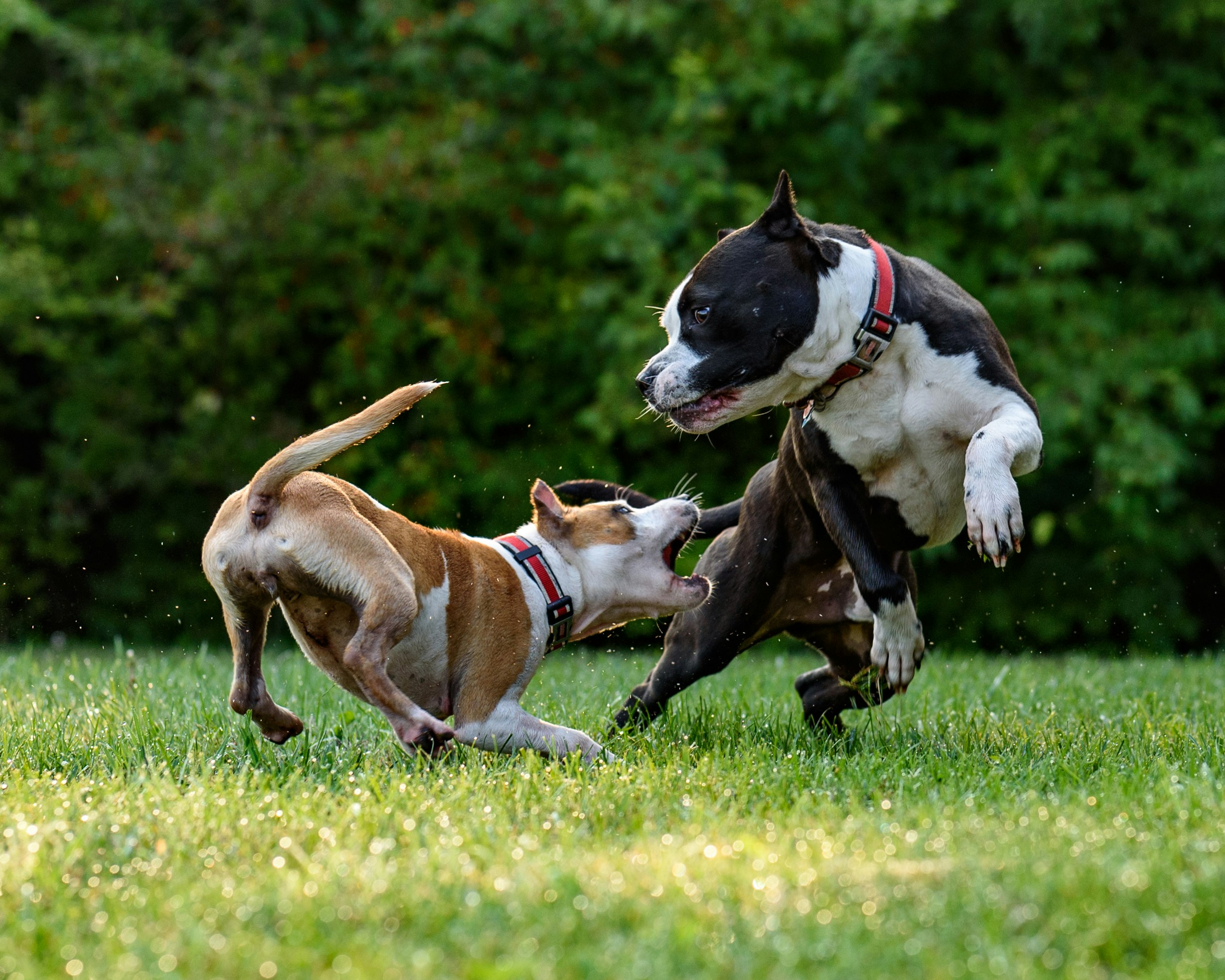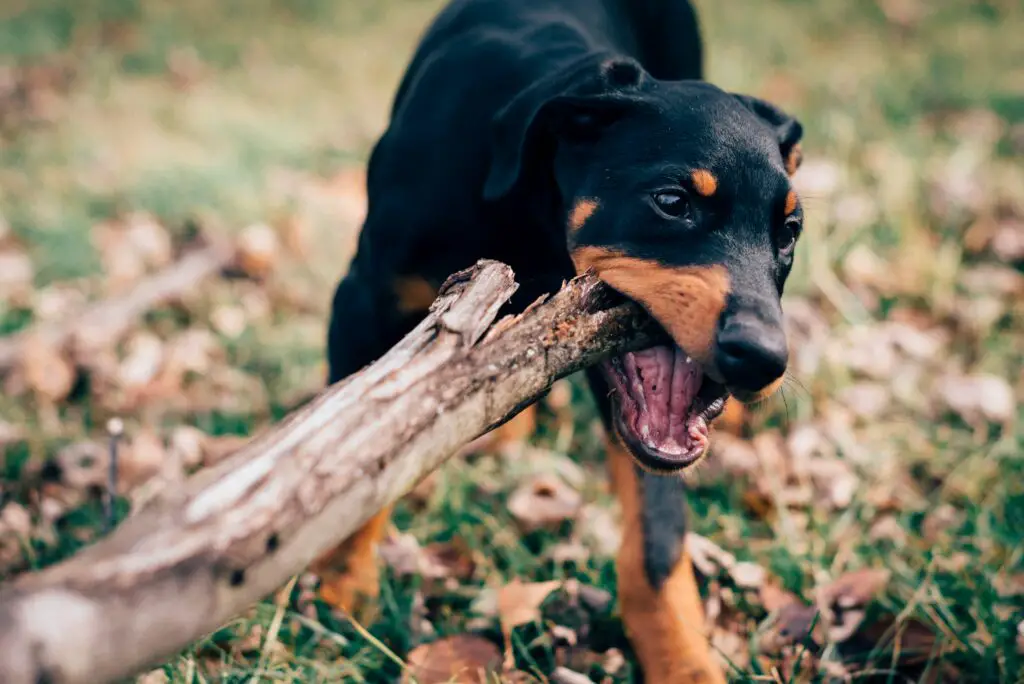We all love our dogs, but they can become vicious in certain circumstances. That’s why dog bite laws exist to ensure no one is harmed when dogs become aggressive, aiming to protect public safety.
This video is the perfect example of why dog bite laws exist. Two rottweilers are on the loose, roaming around a neighborhood. For some context, a neighbor called the police to report them.
A police officer pulls up to rectify the situation. One of the dogs runs up to him as soon as he exits the vehicle. The dog is growling, seemingly ready to attack.
The offender shoots the animal out of self-defense. Thankfully, the animal survived.
However, the incident raises questions about liability. Should the officer face consequences for shooting the dog, or is the owner responsible for violating dog bite laws?
What are Dog Bite Laws?
Dog bite laws vary from state to state. In most states, the owner is liable whenever a dog attacks another person or animal. This rule applies regardless of the dog’s history of violence.
However, the ‘one-bite rule’ is in effect in sixteen states. In these states, the owner is only responsible for damages if the owner knew or should have known of their dog’s violent tendencies. So, if the dog has never bitten or attacked anyone before, the owner may not be liable for damages. With that said, an owner is always liable for dog bites if they fail to control, leash, or restrain their animal, resulting in a dog bite.
In some states, if a dog has a history of violence, the owner must securely enclose and muzzle the dog. Failure to take these steps to protect the public could result in fines.
Leash Laws
Many states enforce leash laws, which mandate that dogs must be leashed in public areas outside dog parks. Leashes cannot exceed six feet in length.
Walking an unleashed dog in public can result in a fine.
Leash laws don’t exist in every state, and some states have variations on the law. For example, in Delaware, dogs may run around when the owner is present and controls them. In Connecticut, dogs can roam freely only when hunting.
Dog Bite Laws on Private Property
On private property, specific rules govern dog bite laws. The property owner assumes responsibility for guests on their premises. If a dog bites a guest, the owner could be liable. However, they might avoid liability if the dog was leashed or the owner displayed ‘Beware of Dog‘ signs.

In most states, if a person trespasses on a property and gets bitten, the owner is not responsible for damages. The same applies if the victim provoked the dog.
Private property dog bite laws are relevant in this video as the dog seems to be on private property (possibly its owner’s) when it initiates the attack. And it may have assumed the officer was transpassing.
However, the dog leaves the property to approach the officer, and that’s where the shooting occurs. Therefore, private property laws do not apply.
Can You Harm a Dog in Self-Defense?
State laws vary, but in general, you can kill or harm an animal if you believe it is imposing an immediate threat of serious injury. However, you cannot kill or harm an animal based on past behavior. In most states, you can’t harm a dog for trespassing unless you feel they are endangering you or someone on your property.
Based on this information, the officer in the video was acting in self-defense when he shot the dog.
Owners who violate dog bite laws and other dog-related rules will be responsible for property damage, injuries, and emotional damage.

